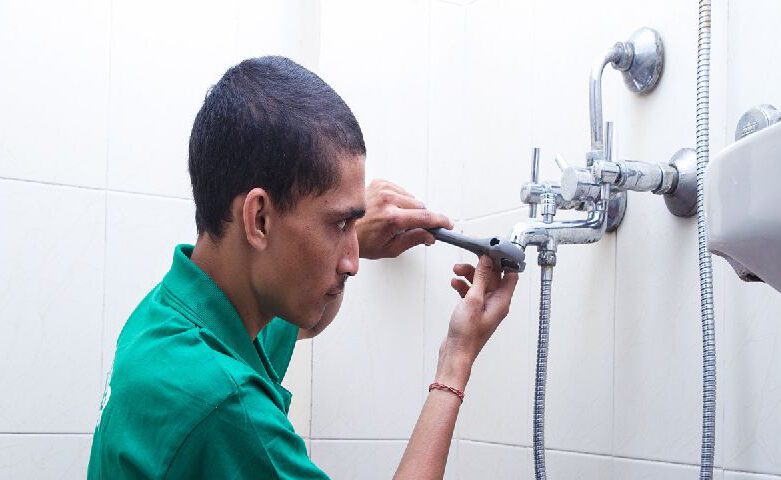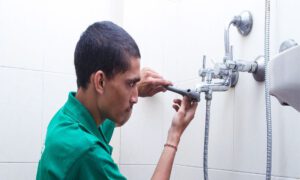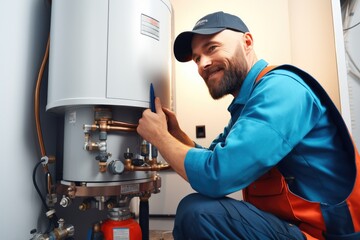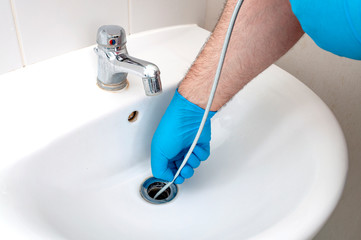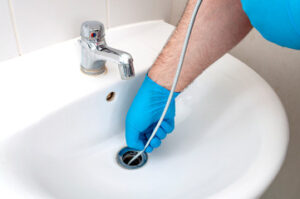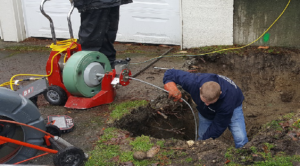When a plumbing problem arises in your workplace, you need Plumbers Topeka KS to fix it. These professionals handle the installation, repair, and maintenance of water supply infrastructure in more significant buildings.
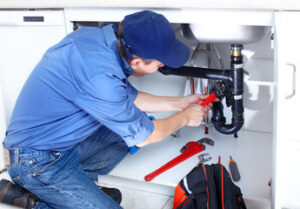
While all plumbers must comply with the same building codes, those who work on commercial properties must follow more stringent guidelines. Ask these five questions to find a qualified commercial plumber.
Clogged drains are a plumbing nuisance that can cause a lot of headache and inconvenience. If left unattended, a clogged drain or pipe can result in water and waste backups, which in turn can lead to costly property damage. Luckily, there are several ways to prevent and fix drain clogs.
The drain pipes in your home are interconnected, which means that if one pipe becomes clogged, it can affect the entire system. The best way to prevent drain clogs is to be careful what goes down the drains, such as not disposing of grease and fat in your sink or toilet, and keeping paper products out of the pipes (like tampons, wipes, and toilet paper). You can also try pouring hot water and baking soda down the drain to see if it dislodges the clog.
When it comes to clogged drain lines in commercial buildings, things can get a bit more complicated. Especially in hospitals and other medical facilities, the amount of people using the building’s bathroom and water systems can be much higher than in residential spaces. This means that it’s more likely for a drain line to become blocked or clogged by what people are flushing down the toilet.
In addition, commercial bathrooms often have multiple sinks, toilets, and bathtubs in the same space. This can make it more difficult to diagnose problems like a clogged drain or sewer line, as they could be caused by several different factors.
The good news is that, unlike at homes, commercial plumbers are equipped with more tools to deal with these types of issues. For instance, commercial plumbing companies can use power augers to clear blocked drains and pipes. These machines are similar to snakes, but they’re typically larger and more powerful, allowing them to break up and remove bigger obstructions in the pipes.
To use a power auger, simply plug it in and position it over the drain pipe. Then, feed several feet of the cable into the pipe and push it in. Once you feel resistance, switch the motor to reverse direction and pull out a few feet of cable. Repeat this process until the clog is fully cleared.
Sewer Line Cleanouts
If you notice sewage backing up into your drains, have toilets that keep clogging, or have other sewer-related issues, there is a good chance you have a problem with your lateral sewer line. This is the piping that connects your home to the municipal sewer lines or to your private septic tank.
If this line becomes clogged, it can cause sewage to back up into your drains, which is not only messy but also dangerous for your family. A plumber will often need to use a hydro-jet or sewer auger to clear the clog and restore proper function to your home’s plumbing system. This is why it’s so important to have a sewer line cleanout installed.
A sewer cleanout is a fitting located at the end of your lateral sewer line on your property. It has a cap that can be removed to allow plumbers to access the line to remove clogs or scope it for damage. Without a sewer line cleanout, a plumber would have to either climb on your roof or pull down a toilet in order to get to the lateral sewer line and clear a blockage.
While some newer homes have them, older homes do not. If your home does not have a cleanout, you can still have one installed. This will make it much easier and faster for a plumber to clear a clog or otherwise service your plumbing.
The location of your sewer cleanout will depend on how your house was built. If your septic system is connected to the municipal sewer lines, your cleanout will be close to the home in line with the septic tank. Otherwise, the cleanout will be located near your foundation wall. To find it, walk your yard and look for a plastic pipe that sticks up above ground.
The easiest way to know if you have a sewer cleanout is if you see the green marker on your lawn. However, if you cannot locate the marker, you can check inside your basement (the cleanout will be within 3 feet of your house’s inner foundation wall) or in crawl spaces and attics.
Water Heater Installations
A commercial water heater is an essential part of any building, as it provides the hot water that’s needed for cleaning and cooking. If your water heater is not working properly, or you think it may be time to replace it, contact an experienced plumber to help. A professional plumber will be able to install or repair the water heater quickly and efficiently.
Water heaters are complicated appliances, and there are many factors that can affect their performance. A good plumber will be able to recommend the right type of water heater for your home or business, and they’ll also be up-to-date on any local regulations regarding water heater installations. This will ensure that your installation meets all safety and health requirements.
It’s important to have a well-functioning water heater, but it’s also vital not to overwork or damage it. An experienced plumber will know how to maintain your water heater so that it lasts longer and works more effectively. They can also help you choose a new water heater that will meet your needs and budget.
There are several things to consider when choosing a water heater, including how many people will be using it and the temperature of your hot water. The size of your home is another factor to consider, as you’ll need to ensure that the water heater can hold enough hot water for everyone to use. It’s also important to consider whether you’d like a conventional tank or a more modern tankless water heater.
If you’re considering a tankless water heater, it’s important to hire a licensed plumber for the job. A professional plumber will be able to ensure that the system is installed correctly, which will minimize leaks and reduce energy consumption. They will also be able to ensure that the system is connected properly to your plumbing, gas lines (if applicable), and ventilation systems.
It’s possible to install a water heater on your own, but it’s not a job for beginners. Not only are you dealing with hazardous materials such as gasoline (natural or propane, different rules apply), but you’re also working with high-level electricity. Even a small mistake can lead to flooding, electrocution, or carbon monoxide poisoning (depending on the fuel used).
Emergency Plumbing Repairs
If you have a major plumbing issue, such as a sewage backup or a burst water pipe, then it’s time to call an emergency plumber. These plumbing professionals are available 24/7 to tackle all kinds of emergency plumbing repairs, including fixing toilets, garbage disposals, leaky faucets and water heaters. They can also thaw frozen pipes and conduct video inspections of sewer lines to diagnose problems.
The cost of emergency plumbing services will vary depending on the plumber and where you live. For example, a master plumber will typically charge more than a journey-level plumber. Master plumbers have advanced training and can perform more complex plumbing tasks, such as installing gas pipes or water heaters. They can also supervise junior plumbers and have the authority to pull permits and manage projects.
You should always ask for a written estimate before hiring an emergency plumber. This will help you determine whether or not the plumber is charging a fair rate. The plumber should be able to provide an estimated cost for both parts and labor. It’s also a good idea to check online reviews and testimonials before making a decision.
It’s important to know what kind of plumbing issues require emergency service and when it’s worth calling a plumber for routine work. For example, a slow drain that can be easily addressed with a drain snake probably doesn’t need to be fixed right away. A clogged toilet, on the other hand, needs to be addressed immediately before it causes flooding and serious water damage.
Some plumbing problems can wait until normal business hours to be fixed, such as a minor sewer clog that still allows for some drainage. But, other emergencies, such as a sewer backup that affects your entire home and puts you and your family at risk, should be addressed as soon as possible. By following these tips, you can make the best choice when it comes to choosing a plumber for emergency plumbing repairs. You’ll save money and be able to get your plumbing back up and running as quickly as possible.

